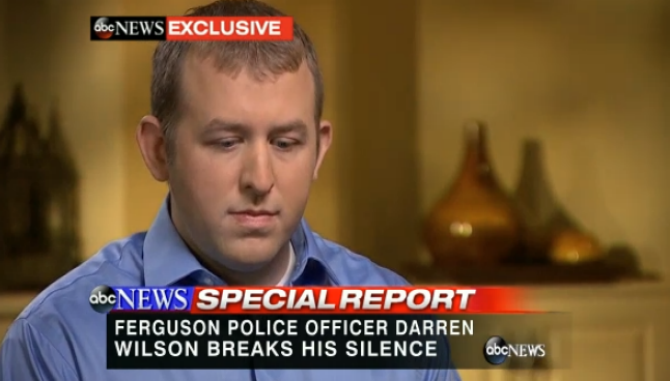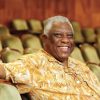By: Lynette Holloway

Darren Wilson, the unindicted Ferguson, Mo., police officer who shot and killed unarmed 18-year-old Michael Brown during a confrontation, has resigned, the Daily Mail reports.
His attorney Neil Bruntrager announced Saturday that he would be stepping down and his resignation would be effective immediately, the Mail reports. In his resignation letter, Wilson said his presence put the residents and officers of Ferguson at risk.
The Mail reported last week that Wilson could have a $1 million “war chest” from online fundraisers held by supporters. One woman who started the fund drive told the news agency that she has been the subject of threats.
Wilson, who was on paid leave since the Aug. 9 shooting, has not racked up large legal fees because his lawyers were all from the police union and the Ferguson police department likely covered the cost of hiding him until the grand jury decision was announced, the report says.
There had been reports that he had been paid up to six figures for his first television news interview after the grand jury decision, but Wilson strenuously denied the claim, saying, he “wouldn’t jeopardize” his integrity for money, the Mail writes.
Further, Julie Townsend, a spokeswoman for ABC News, which nabbed the first interview, told Richard Prince’s Journal-isms, “We do not pay for interviews, and we did not pay for this interview. Period. ”
The shooting of unarmed Brown sparked angry protests and touched off a nationwide debate about police violence in the black community, especially toward men. The 28-year-old officer emerged from hiding last week after a grand jury did not indict him in the shooting, which renewed protests around the country.
Last week, Bruntager said he told Wilson it would be too dangerous for him to return to his job, saying that his first job would lead him to a back alley where he would be “executed,” the Mail writes.















